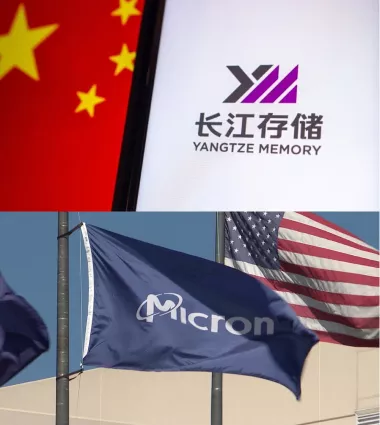OUTLINE:
YMTC Sues Micron for Patent Infringement, Escalating Tech War Between US and China
 108
108
November 13, 2023
Chinese memory chip maker Yangtze Memory Technologies Co (YMTC) has filed a lawsuit against US-based Micron Technology for patent infringement, escalating the tech war between the two countries.
The lawsuit, filed in the US District Court for the Northern District of California, alleges that Micron has been using YMTC's patented technology in its own memory chips without permission. YMTC is seeking an injunction to prevent Micron from continuing to use its patented technology, as well as damages for the alleged infringement.
The lawsuit comes at a time when the US and China are engaged in a heated competition for dominance in the global semiconductor industry. The US has imposed a number of sanctions on Chinese tech companies, including YMTC, in recent years.
YMTC's lawsuit is a sign that China is becoming more assertive in defending its intellectual property rights. The lawsuit could also have a significant impact on the global memory chip market, as YMTC and Micron are two of the world's largest producers of memory chips.
Implications of the Lawsuit
The outcome of the lawsuit is unclear, but it could have a significant impact on the global memory chip market. If YMTC is successful, it could force Micron to pay damages and/or stop using YMTC's patented technology. This could hurt Micron's competitiveness and give YMTC an advantage in the market.
The lawsuit could also escalate the tech war between the US and China. If the US government sides with Micron, it could impose additional sanctions on YMTC or other Chinese tech companies. This could further damage the relationship between the two countries and make it more difficult for US companies to operate in China.
The lawsuit is also a reminder of the importance of intellectual property rights in the tech industry. Companies invest billions of dollars in research and development, and they rely on patents to protect their innovations. If companies are not able to protect their intellectual property rights, it could discourage them from innovating, which would harm the entire tech industry.

Disclaimer: The views and opinions expressed by individual authors or forum participants on this website do not represent the views and opinions of Chipsmall, nor do they represent Chipsmall's official policy.

share this blog to:

